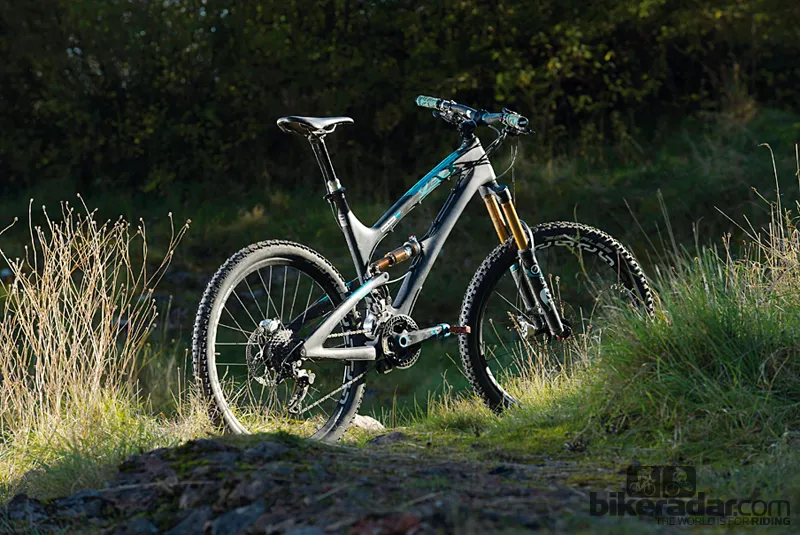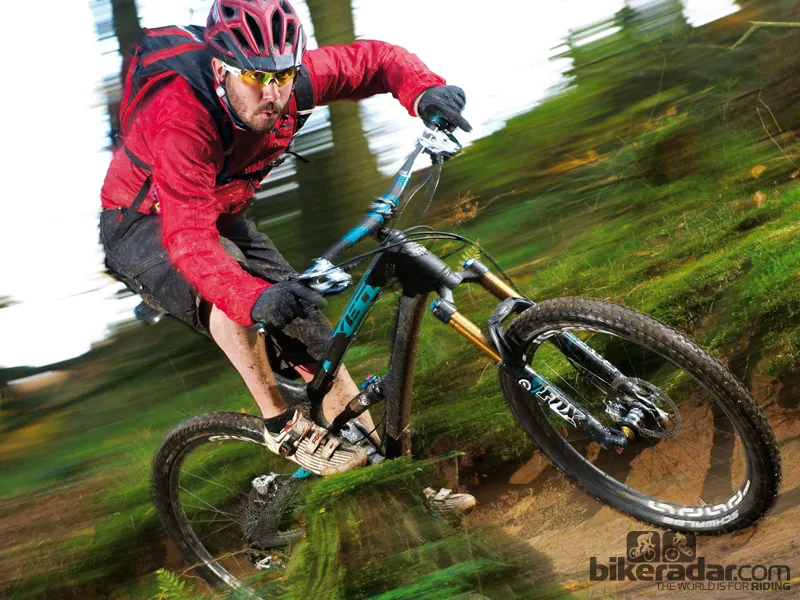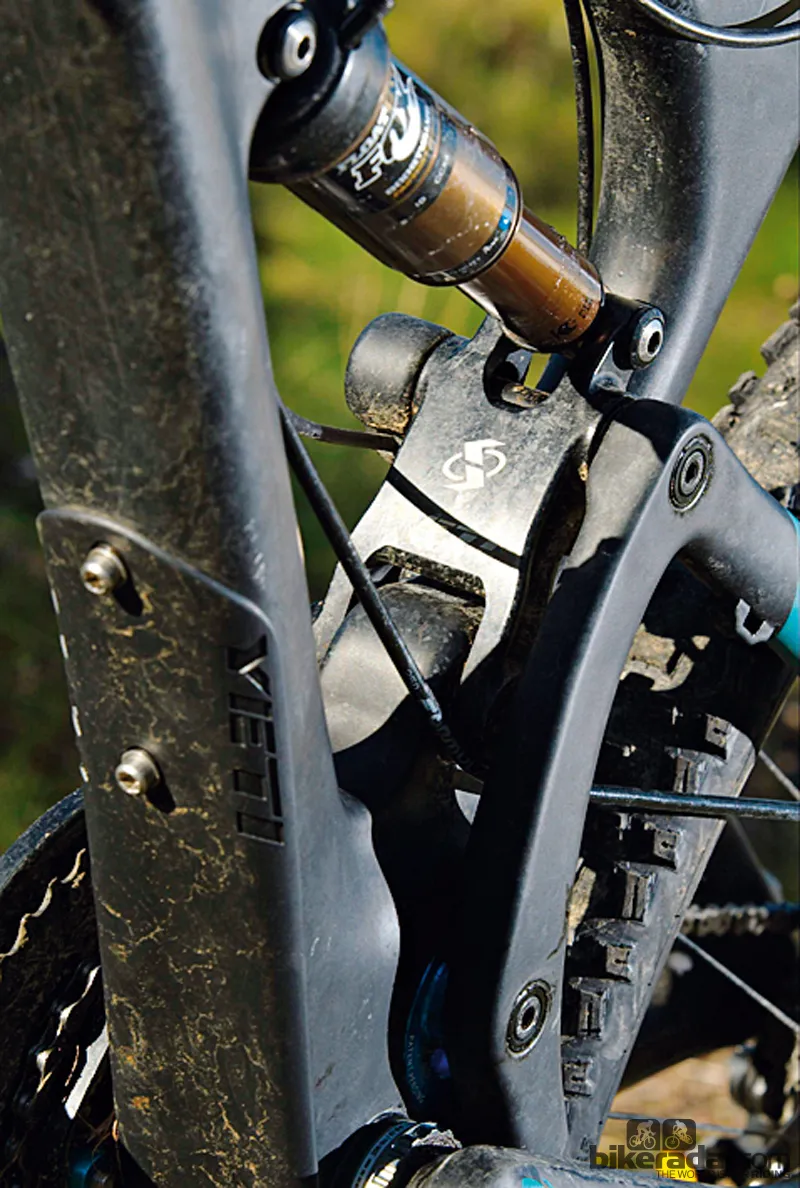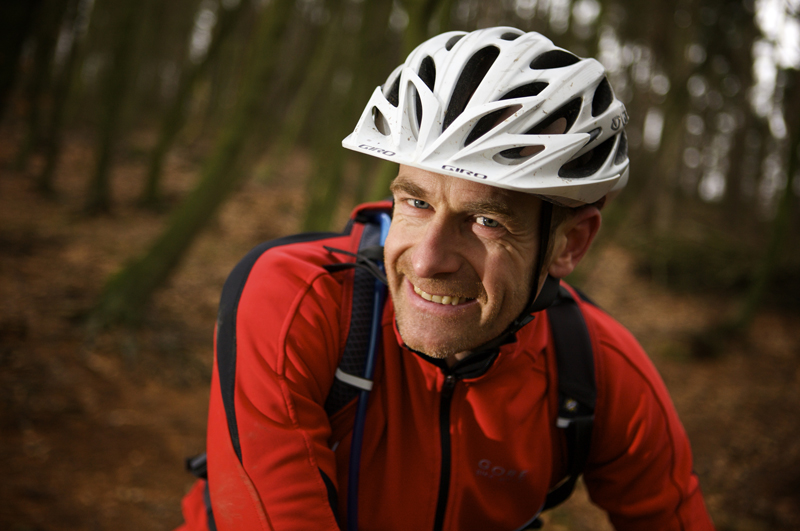Yeti’s carbon fibre frame unleashes the fantastic pedalling potential of its strikingly-curved long-travel, long-distance battle cruiser.
Ride & handling: Highly efficient for long haul trails
It’s not just the lightweight frame that lets the Yeti push the pace on the climbs. Even with the CTD (Climb Trail Descend) lever left in descend, there’s barely a hint of shock bob when sitting and spinning.
It stays stable grunting out of slow switchbacks, and the long top tube means you never struggle for breathing space even with a short stem. The result is a bike that keeps shorter travel bikes pegged even on long climbs, and minimises the time between tasty bits of long rides.
The long and slack geometry is naturally confident. Keep your weight forward and it swings through tightening corners on tech descents and climbing trail centre switchbacks without a wobble.
As long as you give the long wheelbase room it doesn’t mind whether you’re coaxing it round at stalling speed or blatting flat out down a sequence of berms with the front tyre growling for grip. Once we got used to leaving more room for trees we loved the leverage added by the monster, 780mm SixC carbon bars.
Precision from the front and rear ends is impressive, with clear feedback from both tyres when it’s set up to ride firm. The low-sloped top tube means it can twist along its length if you’re pushing through rowdy stuff, and overeager compression of the rear shock can unsettle it in corners.
Increasing the shock pressure or compression damping makes things more predictable – and a fractional back-off straightens it up smoothly if it does begin to get out of shape.
Push through the initial resistance that makes it pedal so well and the massive, practically zero-friction lower ‘pivot’ of the Switch system glides through mid-sized bumps. The smooth, eccentric-bearinged suspension handles flat-faced hits well, so as long as you stay off the power and pump the terrain it holds speed really well.

Frame & equipment: Superb pedalling and low weight, though shock needs care
While some carbon frames only lose 2-300g over the alloy versions, the SB66 weighs in 600g lighter. A tapered head, oversized tube profiles and a 142x12mm axle mean it loses remarkably little rigidity in the process.
Our test bike comes from the Yeti, e*thirteen and RaceFace UK importer Silverfish, and is actually the personal ride of head honcho Darren Mabbot (the poor, trusting fool). It’s a showcase of colour-coordinated goodness, from the new 780mm SixC bars to the caps on the carbon cranks.
A smooth e*thirteen chain device sits on the ISCG tabs, while the fat-hubbed, scandium-rimmed TRS wheels keep tracking tight. Even with a chunky 160mm Fox 34 fork and 152mm travel out back it comes in under 12.7kg (28lb).
If you’re into big-country epics, breezing up long climbs and then flowing the descents – or red route trail centre tear-ups with enough control for occasional black run blasts – the Yeti is as good as it looks. It takes accurate shock tuning to get the best from the Switch suspension, though, so it needs patience to extract its full potential.
This article was originally published in What Mountain Bike magazine, available on Apple Newsstand and Zinio.


